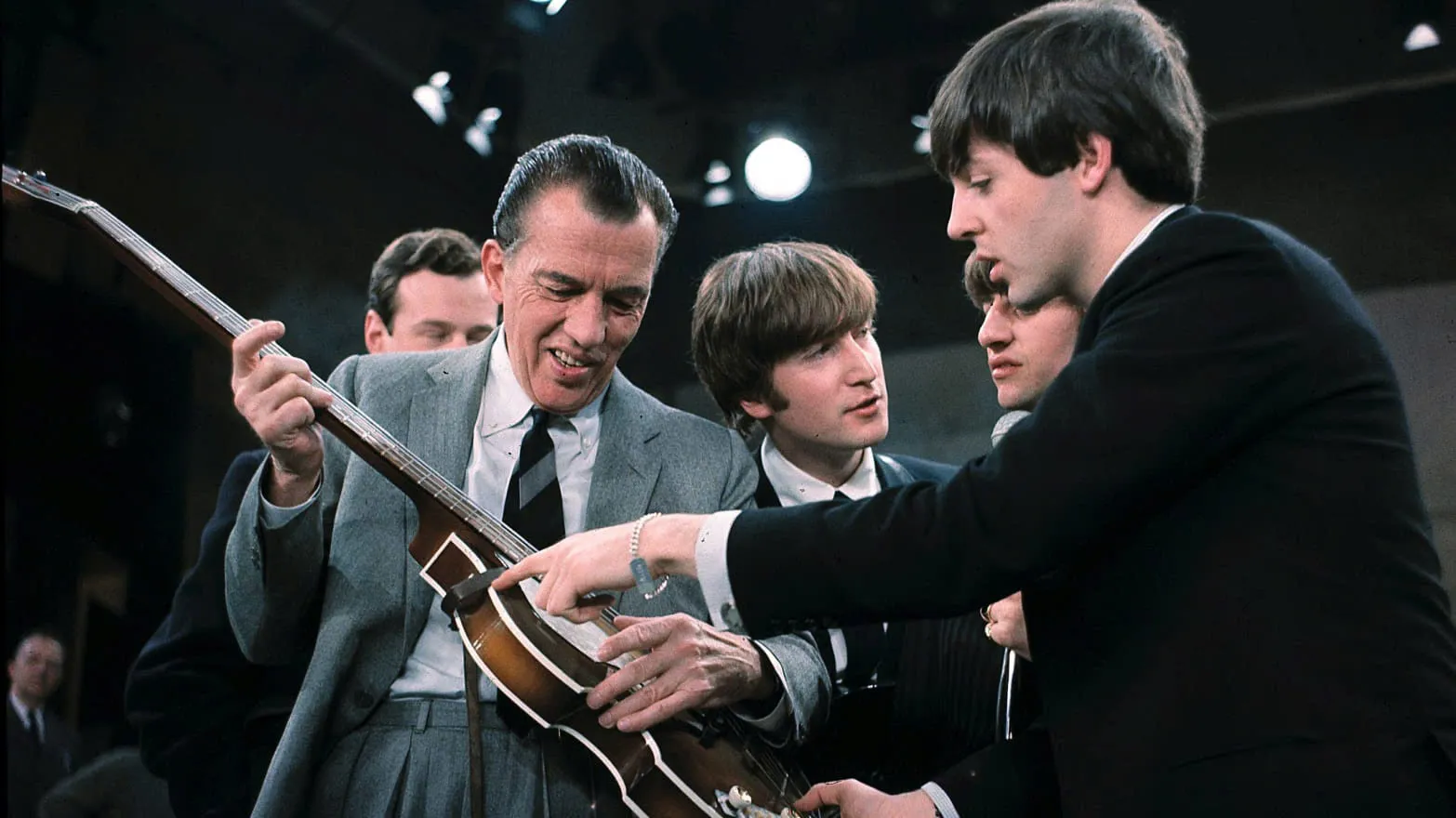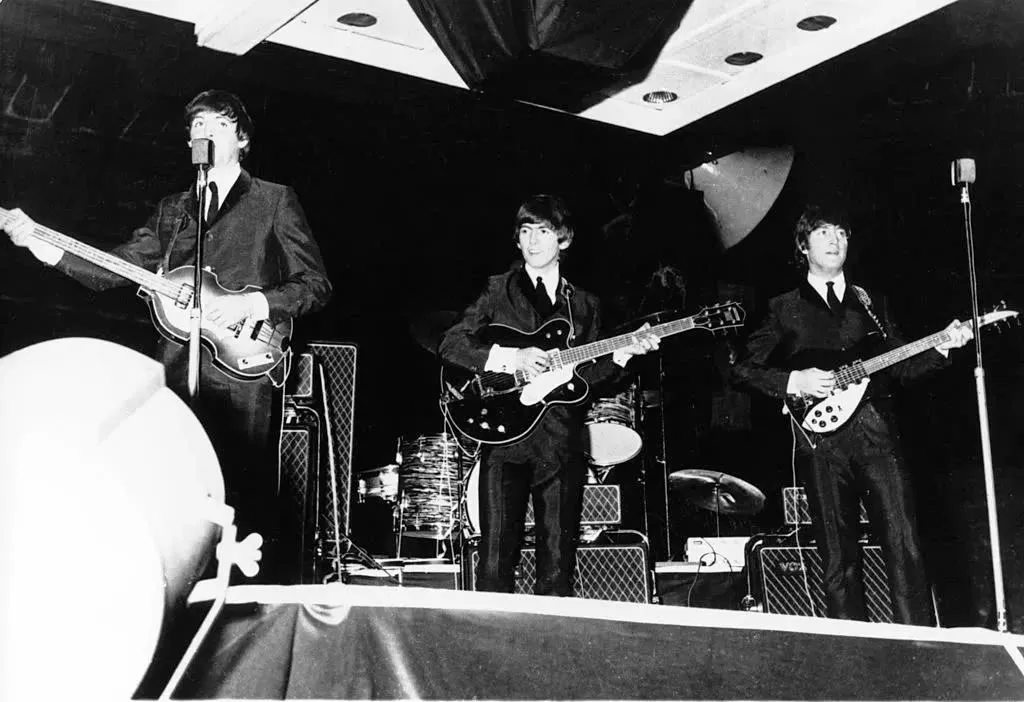A Revolution, With Guitars: How The Beatles Changed Everything
The Beatles, often heralded as the most influential band in the history of popular music, did more than just create a string of hit records. They sparked a cultural revolution that reshaped the music industry, challenged social norms, and defined a generation. The Beatles were not just a band; they were a phenomenon that transformed the landscape of music and culture, leaving an indelible mark on the world. This revolution, with guitars in hand, changed everything.

The Birth of a Cultural Force
The Beatles were born out of the post-war era in Liverpool, a city that was, like much of the world, recovering from the devastation of World War II. John Lennon, Paul McCartney, George Harrison, and Ringo Starr, the four young men who would become The Beatles, grew up in a time of significant social and economic change. The rise of youth culture in the 1950s and 60s, fueled by the emergence of rock 'n' roll, provided the fertile ground from which The Beatles would emerge.
Their early years were spent playing in clubs in Hamburg, Germany, and Liverpool, where they honed their craft and developed the tight-knit musical chemistry that would later define their sound. It was during these formative years that they absorbed a wide range of influences, from American rock 'n' roll to rhythm and blues, skiffle, and even classical music. These influences would later be synthesized into a sound that was uniquely their own.
Beatlemania: A Global Phenomenon
The Beatles' breakthrough came in 1963 with the release of their first album, "Please Please Me," which was followed by a series of hit singles that took the UK by storm. By 1964, The Beatles had conquered America, a feat symbolized by their appearance on "The Ed Sullivan Show" in February of that year. This performance, watched by over 73 million people, marked the beginning of "Beatlemania," a global phenomenon that saw millions of fans, young and old, become obsessed with the band.
Beatlemania was more than just a fan craze; it was a social and cultural movement. The Beatles represented a new kind of celebrity, one that was accessible, relatable, and deeply connected to the youth of the time. Their influence extended beyond their music, impacting fashion, language, and even attitudes toward authority. The "moptop" haircuts, the sharp suits, and the infectious energy of The Beatles became symbols of a generation that was eager to break away from the staid conventions of the past.

Revolutionizing the Music Industry
One of The Beatles' most significant contributions was their transformation of the music industry. Before The Beatles, the music industry was dominated by single-oriented pop acts, with little emphasis on the album as a cohesive artistic statement. The Beatles changed that with a series of groundbreaking albums that redefined what pop music could be.
"Rubber Soul" (1965) marked the beginning of The Beatles' shift toward more sophisticated and experimental music. The album featured more complex lyrics, diverse instrumentation, and a greater emphasis on production techniques. This was followed by "Revolver" (1966), an album that pushed the boundaries of what was possible in a recording studio. Songs like "Tomorrow Never Knows" utilized tape loops, reversed sounds, and innovative recording techniques that were revolutionary at the time.
But it was "Sgt. Pepper's Lonely Hearts Club Band" (1967) that truly changed the game. Widely regarded as one of the greatest albums of all time, "Sgt. Pepper" was a concept album that blended rock, pop, classical music, and avant-garde experimentation into a seamless whole. It was an album that demanded to be listened to from start to finish, challenging the prevailing notion of the album as merely a collection of singles. The Beatles' work on "Sgt. Pepper" set a new standard for artistic ambition in popular music, inspiring countless artists to view the album as a serious artistic medium.
Social and Cultural Impact
The Beatles were not just musical innovators; they were cultural pioneers who challenged the status quo and helped to define the ethos of the 1960s. Their influence extended into virtually every aspect of popular culture, from fashion and film to politics and philosophy.
The Beatles' impact on fashion was immediate and lasting. Their early image, characterized by their matching suits and moptop haircuts, quickly became a global trend. As their music evolved, so too did their style, reflecting the broader cultural shifts of the decade. By the late 1960s, The Beatles had embraced the countercultural aesthetic, with long hair, beards, and colorful, eclectic clothing that became emblematic of the hippie movement.
The Beatles also played a significant role in the rise of the counterculture. Their music, with its themes of peace, love, and social justice, resonated deeply with the growing youth movement that was challenging the established norms of society. Songs like "All You Need Is Love" and "Revolution" became anthems of the era, encapsulating the spirit of optimism and rebellion that defined the 1960s.
The Beatles' exploration of Eastern spirituality, particularly through their association with Maharishi Mahesh Yogi and Transcendental Meditation, also had a profound impact on Western culture. Their interest in Indian music and philosophy introduced many in the West to these traditions, sparking a wave of interest in Eastern spirituality that continues to this day.

The Beatles as Cultural Icons
The Beatles were more than just musicians; they were cultural icons who embodied the hopes and dreams of a generation. Their journey from working-class Liverpool to global superstardom was a story of talent, ambition, and innovation, but it was also a story of how four young men came to represent the aspirations of millions.
The Beatles' influence on popular culture was profound and far-reaching. They were the first band to truly understand and exploit the power of mass media, using television, film, and radio to reach a global audience. Their movies, including "A Hard Day's Night" (1964) and "Help!" (1965), were groundbreaking in their use of music video-style sequences, and they helped to define the emerging genre of music videos.
The Beatles' legacy also extends to their role as social commentators. Through their music and public statements, they addressed some of the most pressing issues of their time, from civil rights and the Vietnam War to drug use and spirituality. Their willingness to speak out on controversial topics, combined with their immense popularity, gave them a unique platform to influence public opinion.

A Lasting Legacy
The Beatles' impact on music and culture is undeniable, but their legacy goes far beyond their own era. They laid the groundwork for the modern music industry, pioneering the concept of the artist as both a commercial and creative force. Their emphasis on artistic integrity and innovation continues to inspire musicians across genres, from rock and pop to hip-hop and electronic music.
The Beatles also set a new standard for what it means to be a global cultural phenomenon. Their ability to transcend national and cultural boundaries, to speak to people of all ages and backgrounds, is a testament to the universal appeal of their music and message.
Even today, more than half a century after they first burst onto the scene, The Beatles remain a symbol of the power of music to change the world. Their songs continue to be celebrated and covered by artists around the globe, and their influence can be seen in everything from fashion and film to politics and philosophy.
Conclusion
The Beatles did more than just change the face of music; they changed everything. They revolutionized the music industry, challenged social norms, and defined a generation. Their influence continues to be felt today, a testament to the enduring power of their music and the cultural revolution they inspired. With their guitars in hand, The Beatles led a revolution that transformed the world, leaving a legacy that will continue to resonate for generations to come.


